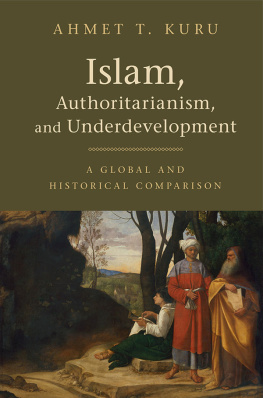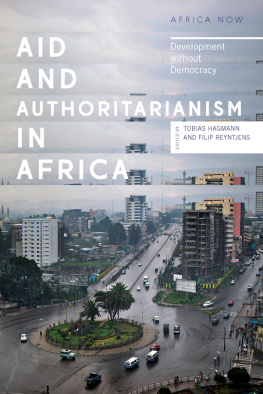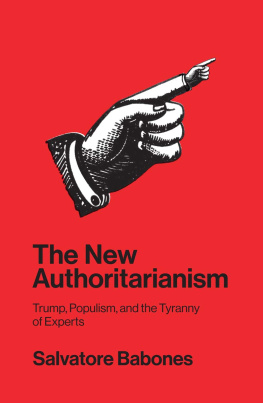When Media Succumbs to Rising Authoritarianism
This book provides a transversal scholarly exploration of the multiple changes exhibited around Venezuelan media during the Chvez regime. Bringing together a body of original research by key scholars in the field, the book looks at the different processes entailed by Chavismos relationship with the media, extending their discussion beyond the boundaries of the specific cases or examples and into the entire articulation of a nearly-perfect communicational hegemony.
It explores the wide-ranging transformations in the national mediascape, such as how censorship of journalistic endeavors has impacted news consumption/production in the country to the complexities of Venezuelan filmmaking during Chavismo, from the symbolic postmortem persistence of Chvez to the profound transformations undergone by telenovelas, from the politically induced migration of online audiences to the reinvention of media spaces for cultural journalism as forms of resistance.
Allowing readers to engage not only with the particular case studies or exemplars presented, but with the underlying cultural, economic, political, societal, and technical aspects that come into play and which allow the extrapolation of this body of research onto other national or international contexts, this book will be an important resource for scholars and students of journalism, communication, media studies, and politics.
Ezequiel Korin is Assistant Professor at the University of Nevada Reno.
Paromita Pain is Assistant Professor at the University of Nevada Reno.
Routledge Focus on Journalism Studies
Metro Newspaper Journalists in China
The Aspiration-Frustration-Reconciliation Framework
Zhaoxi Liu
Drones and Journalism
How the media is making use of unmanned aerial vehicles
Phillip Chamberlain
The Rise and Fall of the British Press
Mick Temple
Toward a Theory of True Crime Narratives
A Textual Analysis
Ian Case Punnett
Peace Journalism in East Africa
A Manual for Media Practitioners
Edited by Fredrick Ogenga
Discourses of Legitimation in the News
The Case of the Economic Crisis in Greece
Vaia Doudaki and Angeliki Boubouka
Australian Sports Journalism
Power, Control and Threats
Peter English
When Media Succumbs to Rising Authoritarianism
Cautionary Tales from Venezuelas Recent History
Edited by Ezequiel Korin and Paromita Pain
First published 2021
by Routledge
2 Park Square, Milton Park, Abingdon, Oxon OX14 4RN
and by Routledge
52 Vanderbilt Avenue, New York, NY 10017
Routledge is an imprint of the Taylor & Francis Group, an informa business
2021 selection and editorial matter, Ezequiel Korin and Paromita Pain; individual chapters, the contributors
The right of Ezequiel Korin and Paromita Pain to be identified as the authors of the editorial material, and of the authors for their individual chapters, has been asserted in accordance with sections 77 and 78 of the Copyright, Designs and Patents Act 1988.
All rights reserved. No part of this book may be reprinted or reproduced or utilised in any form or by any electronic, mechanical, or other means, now known or hereafter invented, including photocopying and recording, or in any information storage or retrieval system, without permission in writing from the publishers.
Trademark notice: Product or corporate names may be trademarks or registered trademarks, and are used only for identification and explanation without intent to infringe.
British Library Cataloguing-in-Publication Data
A catalogue record for this book is available from the British Library
Library of Congress Cataloging-in-Publication Data
A catalog record has been requested for this book
ISBN: 978-0-367-61616-8 (hbk)
ISBN: 978-1-003-10572-5 (ebk)
Typeset in Times New Roman
by codeMantra
Ezequiel Korin and Paromita Pain
Trying to understand any societal process spanning two decades is, in itself, a monumental task. This difficulty is further compounded by the high complexity of the Venezuelan situation, its antecedents and nuances, its highly politicized context and multidimensional characteristics. It is necessary, then, to parse out some of its constitutive elements in order to, later, rearticulate them into the conjunctural flux in which they gain relevance and produce significative effects.
During the past 20 years, Venezuela has undergone a fascinating albeit highly problematic political process. Within it, the relations between the group in dominance and the media have played a central role. In this period, Chavismo the political current started by the late president Hugo Chvez has understood the media as a premiere site for the articulation of a national consciousness and meaning-making, as noted by the governments unrelenting and overt attempts at establishing a communicational hegemony. To do so, Chavista governments have tried to harness the supersession of media representation above reality as a central element in their pursuit toward total control of public life in Venezuela.
But the tenuous relations between the late infantryman-turned-politician and the media predated Chvezs tumultuous presidency.
As institutions in their own right, Venezuelan private media corporations had been founded by powerful interest groups, several of which preserved sole ownership over an increasing array of outlets and channels, in the process amassing great political, financial, and cultural influence. Even within their ideological and political heterogeneity, for the most part, these media helped maintain and reproduce the dynamics of the status quo in the country prior to 1998.
Used to being deeply influential in national politics, a few Venezuelan media outlets openly supported the Chvez candidacy while others seemed set on an inevitable collision course. As such, during the run up to the 1998 presidential elections, some media reports painted a grim picture of then-candidate Chvez: one day, a video taken a couple of years before at the University of Havana made the news cycle; another day, another video, this time of a grainy tank attempting to run over a gate at Miraflores Palace during the Chvez-led 1992 failed coup made the rounds; later, it would be yet another video, this time belonging to the campaign trail, in which Chvez seemed to promise to deep fry the heads of some political foes.
The seemingly unrelenting barrage of damaging press would have been enough to upend or, rather, end any normal bid for the presidency within a democratic process. However, Chvezs rise to the presidency was anything but normal.
Chvez emerged as a response to a political system that had failed to effectively reinvest vast oil revenues in improving the lives of large swaths of the Venezuelan population. Greatly aided by an anti-left establishment backed by the United States since the mid-20th century, Venezuela had enjoyed the longest-running democracy in the continent. For nearly four decades, an informally established bipartisanship had nearly completely marginalized social movements demanding a more equitable redistribution of oil revenues and the improvement of societal conditions in the country. In the last presidential election of the 20th century, Chvez presented himself as the only viable option for the country to emerge from this slough: a political outsider who was unblemished, untouched, and unbridled by the innerworkings of the quagmire that had sunken Venezuela into the abyss of neoliberal policies that were to blame for the countrys mishaps, or so the narrative went.









